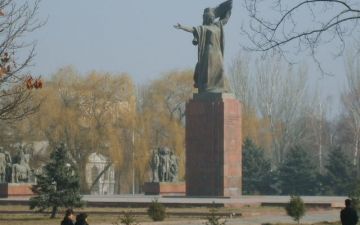Reports of torture in Ethiopia are widespread
(04-16) 04:00 PDT Ghimbi, Ethiopia -- First, the police threw Tesfaye into a dark cell. Then, each day for 17 days, it was the same routine: Electric shocks on his legs and back, followed by beatings with rubber truncheons. Four or five officers would then surround and kick him. At last, a large bottle of water would be tied around his testicles. He'd pass out.

 Hugo Chávez's sweeping election win may be read as a simple mandate for the demagogic Venezuelan leader to push on with his plans to transform his country with what he calls "21st-century socialism," designed to empower the impoverished masses with state-controlled oil profits, as described in my article last week. But for the region and the world, his victory could mean much more.
Hugo Chávez's sweeping election win may be read as a simple mandate for the demagogic Venezuelan leader to push on with his plans to transform his country with what he calls "21st-century socialism," designed to empower the impoverished masses with state-controlled oil profits, as described in my article last week. But for the region and the world, his victory could mean much more.


